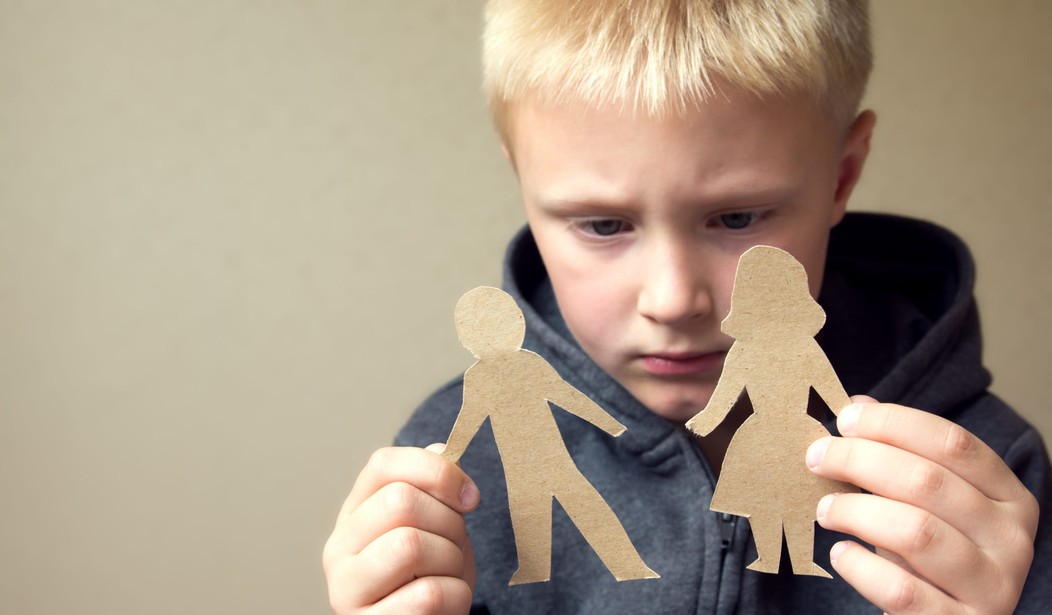Parenting is hard enough without the added difficulty of gender confusion and gender identity issues pushed by the transgender movement. But Christian parents need to be prepared for their children to struggle with gender identity.
So what should Christian parents do if their child says, “I think I’m transgender?” Andrew Walker, director of policy studies at the Southern Baptist Convention’s Ethics and Religious Liberty Commission (ERLC) and author of God and the Transgender Debate, offered advice on this difficult issue in an interview with PJ Media.
His book also gave specific advice for children struggling with these issues at specific ages.
“If a child comes out as gender dysphoric, the first thing to do is hug them,” Walker said. (Gender dysphoria is a term for the sense of being born in the wrong body.) “The first thing you have to do as a parent is to love — the bond between a child and a parent is indissoluble.”
In his book, the ERLC director emphasized that abandoning a child is wrong, no matter what that child has done. “Even if it’s a child who disagrees with your faith, that person does not cease to be your child,” Walker told PJ Media.
“If the person is not a believer and is identifying as transgender, you treat them as an unbeliever — that is, you love them, invite them into your home,” he added. “The fundamental thing to be communicated is that there are no grounds for a parent to sever the relationship with their child, ever.”
The fatherhood of God is a central aspect of Christian belief. The Bible promises that those who believe in Jesus Christ are adopted children of God. Earthly parents present an image of God’s fatherhood to their children, so it is important to their spiritual life to be loved unconditionally.
But Walker insisted that transgenderism is incompatible with Christianity. “The transgender movement is fundamentally incompatible with biblical Christianity because it is a casting off of the biological categories of male and female,” he said.
Transgenderism “nullifies the very concept of there being objective maleness and femaleness, objective fatherliness and motherliness.”
He even suggested that transgender ideology may be a form of idolatry. In this movement, “all that matters is my freedom and my choice and my own self-definition.” Therefore, “We have put ourselves at the center of the universe. We’re building an altar to the non-God, man. We’re dethroning God from His role as an objective creator.”
But Christianity also carries a powerful hope for people suffering from gender dysphoria. “We have an answer to people searching after an identity and a community, and Christ is the ground for that,” Walker said. The Resurrection promises a new, unblemished body for each person who is born again in Christ Jesus — one unbesmirched by tears, disease, and psychological issues.
He emphasized that it is not a sin for someone to feel like they were born in the wrong body, but a condition of the fallen world after the Fall. “The extent of the Fall reaches down to the deepest levels of our existence,” Walker said. “We have a view of creation that allows us to understand why people would have these perceptions of themselves.”
The ERLC director further noted that “everyone is equal at the foot of the cross.” While Christians must deny transgender identity, “we don’t have to treat those with sins other than ourselves as freaks or perverts or more egregious sinners than you or I.”
Given this perspective, Walker gave tips on what to tell gender dysphoric children at different ages.
If your child comes to you, claiming to be transgender, the first thing to do is hug them, love them, and emphasize that you will always love them, the author suggested. Secondly, you should listen to them in full and do not interrupt.
Third, and most importantly, consider their age.
“For a four-year-old, we should not read too much into things if a young child says they’d like to be the opposite gender,” Walker wrote. “They’re likely testing the bounds of what is possible in order to explore and think through the world they’re living in.” He insisted that if such a boy wants to play with dolls or a girl with G.I. Joes, “it almost certainly doesn’t mean anything!”
“For an eight-year-old, then, this may be different, if the feelings are persistent—but here it’s crucial to remember that, even if a pre-pubescent child really does feel they are the opposite gender, statistically the vast majority of individuals outgrow these feelings,” the author noted.
Interestingly, he suggested that sex hormones associated with puberty are actually a good thing for children suffering with gender dysphoria. Many transgender activists push for such children to block these hormones, but Walker said the hormones can help them grow into their birth sex.
For teenagers, the discussion becomes rather tricky, Walker admitted. “One thing worth saying is that how you feel is not necessarily who you are. This runs totally contrary to the Western world’s wisdom, and so it needs gently saying, and gently repeating.”
If the child professes to be a Christian, Walker suggested reminding him or her that carrying a cross is part of the Christian life. God might be calling him or her to a difficult path of discipleship, as He calls single people to abstain from sex. Every Christian will have struggles to bear, but Jesus promises that His burden is light.
Fourth, Walker suggested that if your child tells you he or she suffers from gender dysphoria, you should ask for prayer in your local church. Finally, he suggested finding a Christian counselor or psychologist to help you and your child.
The world is a confused and confusing place, and its fallen state carries struggles for everyone. Christians are called to love their fellow sinners and extend God’s grace to them. They are also called to encourage one another toward godliness, which means correcting someone who claims to be Christian and identifies as transgender.
In any case, it is vital for parents to love their children unconditionally. It is likely that your child will grow out of gender dysphoria, and they may even reject transgender identity after embracing it. But they will never grow out of being rejected by you.








Join the conversation as a VIP Member